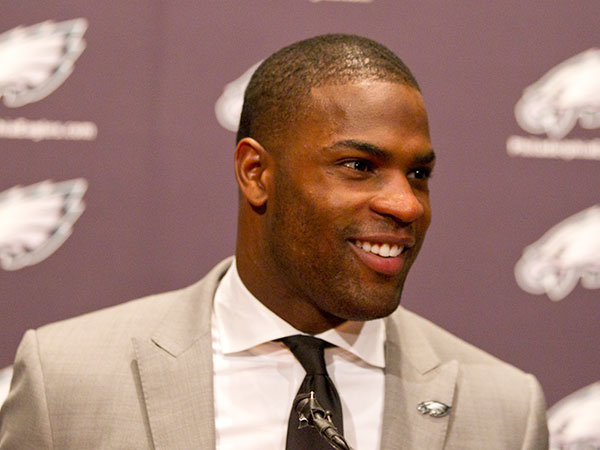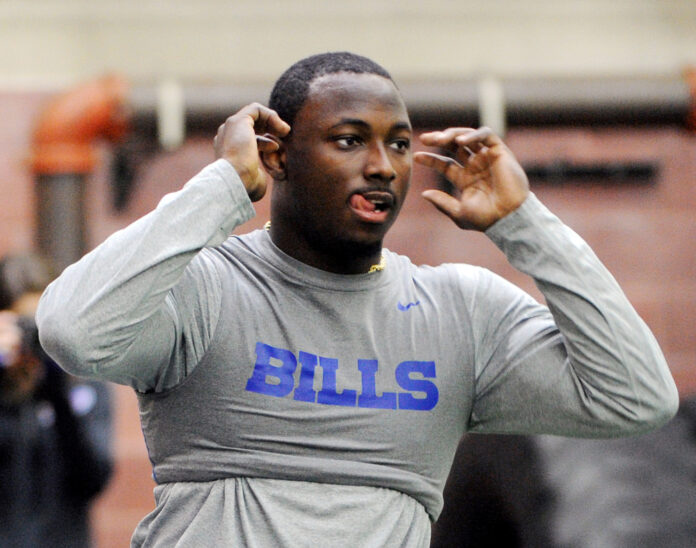LeSean McCoy Goes Low on Eagles, Chip Kelly with Racism Claim
Upon hearing statements from running back LeSean McCoy and wide receiver DeSean Jackson regarding their departures from the Philadelphia Eagles, it becomes evident that their accounts align with head coach Chip Kelly’s decisions.
McCoy expressed his perspective, stating, “The relationship was never genuinely harmonious. I believe I always held Coach Kelly in high regard. It’s his managerial style, seeking absolute control, that defines his approach.
The swiftness with which he parted ways with top-tier players, particularly those of African-American descent, is undeniable.
There is a rationale, even if it’s challenging to elucidate under his leadership. Nevertheless, he swiftly released the black players, especially the exceptional ones.”
McCoy attempted to ease his initial remarks by adding, “This isn’t a condemnation of Chip.
I harbor no ill will towards him, nor do I intend to cast aspersions. When he arrived in Philadelphia, I was uncertain of what to expect. However, when he released DeSean Jackson last year, I was taken aback, thinking, ‘DeSean Jackson?’ So, it is what it is.”

McCoy’s comments seemingly accusing Kelly of racism, followed by his subsequent attempt to downplay any negative sentiments, raise questions about the sincerity of his statement.
Accusing someone of racism is among the most severe criticisms one can make, making it challenging to accept McCoy’s claim that he harbors no negative feelings.
His disappointment at being traded from a place he considered home is understandable, particularly given his belief in his status as the NFL’s premier running back.
It must have been disheartening for McCoy to witness the Eagles trading him and subsequently signing DeMarco Murray for a similar contract, essentially replacing him.
In the world of the NFL, players often confront rejection in various forms and at different stages of their careers.
However, public allegations of racial bias in a situation where one African-American running back is succeeded by another African-American running back bring a unique dimension to the problem.
DeSean Jackson, on the other hand, expressed a more measured perspective on his departure from the Philadelphia Eagles.
He stated, “Honestly, I’ve moved beyond that chapter. It has been two years since I departed from the Philadelphia Eagles. I am content and thrilled with my current situation. I prefer not to become overly entangled in the happenings in Philadelphia.
LeSean McCoy is not only a dear friend but also an exceptional running back, among the best in the league. I view myself as one of the top wide receivers in the league. It remains perplexing why they chose to part with their best players.
Nevertheless, their decision is their own. Our current teams thrive and garner respect by having these caliber players on board.”
Like McCoy, Jackson finds himself perplexed about why Chip Kelly would choose to part with what he views as one of the top wide receivers in the game. In their eyes, the teams they currently represent are the ones experiencing success.
It’s noteworthy that Philadelphia concluded the 2014 season with a 10-6 record, whereas the Washington Redskins struggled with a 4-12 record last year.
Additionally, despite the Buffalo Bills’ decent performance with a 9-7 record last season, the 2015 Bills, under the guidance of a revamped coaching staff, present a significantly altered landscape.
This enduring sense of disappointment indicates that both McCoy and Jackson still harbor resentment toward Kelly’s decisions.
It’s understandable why they feel this way. Both players firmly believe in their abilities and possess unwavering self-confidence.
However, excessive confidence can sometimes evolve into self-absorption. McCoy’s earlier statement to the Philadelphia Enquirer alluded to this concern when he stated, “I don’t think [Chip] likes or respects the stars, I’m being honest.”
In a team-oriented sport like football, when the best players begin referring to themselves as “stars,” it may indicate a shift from healthy self-confidence to something more self-centered.
On a philosophical level, Kelly’s offensive strategy hinges on a fundamental principle—equitable ball distribution. This approach was evident in the 2013 Eagles, with five players recording 36 receptions or more, and continued in 2014, where five players notched 40 receptions or more.
Kelly aims to distribute the ball evenly among his skilled position players, making his offense more challenging to defend. A ‘star’ mentality among players can disrupt this strategy, creating difficulties in managing egos within NFL locker rooms.
When a coaching staff believes this atmosphere conflicts with their team-building objectives, changes are often implemented. This is a recurring phenomenon in the football business.
The most disappointing aspect of this situation is the introduction of racial implications into the conversation. Accusations of racism against a fellow teammate or coach are highly delicate matters that demand substantial evidence to support such claims.
Making a public statement without substantiation can harm the sense of brotherhood within the NFL. Such actions are unwarranted.
Rejection from one’s team can be a painful experience, but it is a shared occurrence among players. Locker rooms thrive on unity, and baseless claims within an organization can have a divisive impact.
McCoy appears content with his fresh start in Buffalo, and ultimately, this may be in the best interest of everyone involved.

